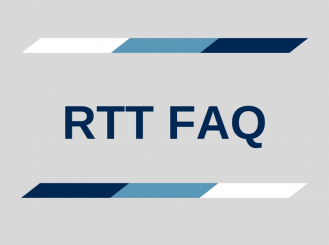Jul 11, 2018
The following FAQs were developed as a resource for ASCO members to share with patients who may have questions about accessing investigational therapies outside of a clinical trial, either under right-to-try laws or through the U.S. Food and Drug Administration’s expanded access program. Download the full FAQ.
What is an investigational therapy?
An investigational therapy is a drug, biologic, or medical device that is in development and undergoing testing but has not been approved by the U.S. Food and Drug Administration (FDA), since a required and rigorous level of testing has not been completed through clinical trials.
What does “right-to-try” mean, exactly?
Right-to-try (RTT) refers to legislation that aims to speed patient access to investigational therapies that have not been approved by the FDA.
What is the expanded access program?
FDA’s expanded access program, known as “compassionate use,” allows very ill patients to access investigational treatments outside of clinical trials.
What is the difference between expanded access and right-to-try?
Both allow patients to apply for access to investigational therapies outside of clinical trials, but FDA’s expanded access program provides guidance on important aspects of patient care, such as appropriate dosing and managing side effects, to treating physicians who would otherwise likely have no clinical experience with the investigational drug a patient might receive. Under expanded access, insurance companies are also required to cover the cost of drugs obtained under compassionate use and the cost of care associated with the drug. Right-to-try laws do not provide these patient protections.
I’ve heard that doctors’ groups have concerns about right-to-try. What are those concerns?
Right-to-try laws lack important patient safeguards compared to the expanded access program. For example, right-to-try leaves treating physicians without guidance on critical aspects of patient care, such as appropriate dosing and managing side effects, since doctors likely have no clinical experience with the investigational drug a patient might receive under right-to-try.
Insurance companies are also not required to cover the cost of drugs obtained under right-to-try or even the cost of care associated with the drug. As a result, patients with cancer who receive treatment under right-to-try assume greater financial risk during one of the most trying times of their life.
Does right-to-try mean I have the right to receive an experimental drug?
No, because right-to-try laws do not require drug manufacturers to provide requested drugs. These laws simply allow patients to ask for investigational therapies. Manufacturers only provide the drugs if they choose to do so. A drug company, however, may decide not to provide an investigational drug for any number of reasons. Perhaps it produced only enough of an investigational therapy for a clinical trial, or maybe it is too expensive for a company to provide the drug. A company may also be concerned about negatively affecting clinical trial enrollment if they gave an investigational therapy to someone who is not in their clinical trial, because clinical trials results are what is needed for FDA approval of a drug for the patient community as a whole.

